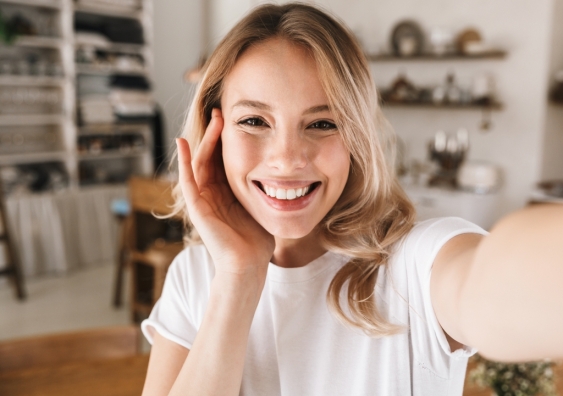Why attractive and trustworthy Airbnb hosts can charge more
UNSW Business School research shows Airbnb hosts who appear to be more attractive and trustworthy charge up to 5 per cent more than their peers for similar listings.
UNSW Business School research shows Airbnb hosts who appear to be more attractive and trustworthy charge up to 5 per cent more than their peers for similar listings.

For online peer-to-peer markets such as Airbnb, where buyers and sellers interact directly, first impressions are critical.
A study has found Airbnb properties with attractive and trustworthy-looking profile pictures attracted more guests and, as a result, hosts charged up to 5 per cent more per night than their peers for very similar apartments.
The study: Understanding the impact of host facial characteristics on Airbnb pricing: Integrating facial image analytics into tourism research, was co-authored by UNSW Business School's Sam Kirshner, Senior Lecturer in the School of Information Systems and Technology Management, and Professor Stuart J. Barnes, Chair in Marketing at King's Business School at King's College in London.
Interestingly, the findings also showed the impact of host facial characteristics varied by property type, with trust found to be significantly more important than attractiveness for small accommodation shared with strangers.
For organisations, the paper offers an original framework for applying deep learning approaches for facial image analytics using big data to tourism research.
Where a host had high-quality profile photos that made them appear more attractive and trustworthy, those properties were more desirable to guests and therefore more likely to command a price premium.
To conduct the study, the researchers used standard measures of facial characteristics, in terms of their perceived attractiveness and trustworthiness, combined with deep learning to classify almost 80,000 Airbnb hosts' profile pictures across 10 US cities. Nearly 80 per cent of these hosts were classified as trustworthy, while some 40 per cent were classified as attractive.
What they concluded was that unconscious bias drove people's decision-making about hosts based on their appearance.
However, while the study focused on the extent to which an attractive profile picture instils trust in potential guests and how this affects pricing, the findings could also apply more broadly, explained Dr Kirshner.
"Advents in e-commerce, the sharing economy, and now the gig economy has increased individuals' reliance on digital platforms. As most platforms rely on trust and reputation systems, our results support that unconscious bias will continue to have substantial implications on how these platforms operate and reward platform participants," he said.
For example, one previous study found that gender and race on gig economy apps like TaskRabbit correlate with worker evaluations, which influence their future work opportunities, explained Dr Kirshner. Similarly, recruiters often check social media profiles, like LinkedIn and Facebook, where applicant photos are readily available, he said.
"While recruiters likely do not believe that profile photos impact their decision-making regarding traits like trust (e.g., one study found that only 1.2 per cent of recruiters believe that Facebook profile pictures reveal reliability), our research suggests that profile pictures can have substantial impacts," he said.
The findings aligned with those of another study, where women who wore glasses during job applications were perceived as more trustworthy, which increased the likelihood of them scoring an interview. In yet another study, job candidates with more attractive Facebook profile pictures received more job interview invitations than candidates deemed less attractive.
"Thus, our results on unconscious judgements regarding trust and attractiveness are likely pervasive across digital platforms," said Dr Kirshner.
Besides looking at the impact of perceived trustworthiness and judgement making on Airbnb prices, the findings added to another critical discussion: the risks associated with facial analytics software.
"While our research uses facial analytics to study subconscious judgement, the simplicity of our methodology ultimately demonstrates the general accessibility of facial analytic tools," explained Dr Kirshner.
Even as the public becomes more aware of the risks, many businesses continue to introduce facial recognition technologies. Despite its severe threats to civil liberties, facial analytics have become a multi-billion dollar industry, said Dr Kirshner.
"While researchers can use facial analytics to understand implications of individual perceptions on broader societal measures, organisations are now applying facial analytics as part of hyper-targeted marketing campaigns," he said.
For example, in global marketing, brands have used platforms like Snapchat to exploit facial analytics or incorporate facial analytics into their sites and integrate promotions into ads after determining peoples' mood and reactions, he said.
Large retailers like Walgreens in the US and shopping centres like Westfield have been known to use camouflaged cameras in billboards and electronic displays that determine your gender and age and analyse faces and people’s moods to improve targeted advertising.
"Beyond being a potential invasion of privacy, these forms of technology provide risks to people, as images are likely to be stored, which can lead to hacking and use of people's faces without permission.
"The growing pervasiveness of cameras equipped with biased and inaccurate facial recognition technologies in public spaces across the globe as part of smart city solutions to crime and terrorism is potentially even more troubling," he said.